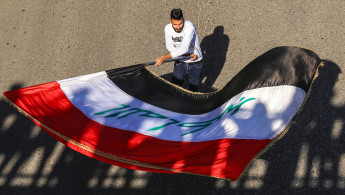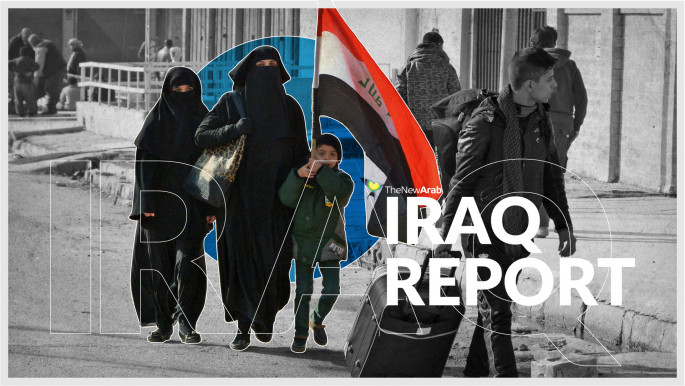The Iraq Report: Mass execution sparks sectarian fears and international concern
Since 2005, Iraq's Sunnis have said that the country's draconian counterterrorism laws enacted primarily by pro-Iran Shia politicians have unfairly targeted them, with allegations of membership of al-Qaeda or the Islamic State (IS) being used as an excuse to imprison or kill Sunni dissidents.
Meanwhile, Iran-backed militias continue to ramp up their attacks against the United States' assets in Iraq, using indiscriminate fire that has killed civilians. While the main body of Iran-sponsored groups has denied responsibility, satellite Shia factions have been accused of acting as a front for Iranian proxies, conducting attacks on behalf of larger groups who have parliamentary representation.
With a changing of the guard imminent in the US, Iran and its allies will be seeking a rapid American withdrawal from Iraq before Joe Biden assumes office in January next year. However, incumbent Donald Trump still has a couple more months to attack Iranian interests in Iraq and could end up setting a fire Biden will struggle to put out.
Iraq on the verge of a judicially sanctioned bloodbath
The United Nations' human rights chief slammed as "deeply troubling" reports that Iraq had executed 21 men in a single day, warning that hundreds of other prisoners faced "imminent" death without first having had a fair trial.
 |
The UN has expressed concern over the fate of hundreds of prisoners on Iraq's death row, most of whom are Sunni, who face 'imminent' execution |  |
"I call on the Iraqi authorities to halt any further executions," UN High Commissioner for Human Rights Michelle Bachelet said in a statement. "I am deeply concerned about the fate of the several hundred prisoners who may be at imminent risk of execution in Iraq," she added.
Her comments came a day after 21 Iraqi men were hanged at the notorious Nasiriyah prison in the country's south, medical and police sources told AFP. The 21 had all been convicted under the country's highly controversial 2005 Counter-Terrorism Law, which carries the death penalty and which Sunni activists have criticised as being sectarian, but no details were known about their specific crimes.
Nasiriyah prison in Dhi Qar province is known for holding condemned ex-officials of the Saddam Hussein regime which was toppled by the 2003 US-led invasion. Many of these "officials" were simply members of the Baath Party rather than ideologically committed, as it was impossible to find economic opportunity unless Iraqis were members of Saddam's party.
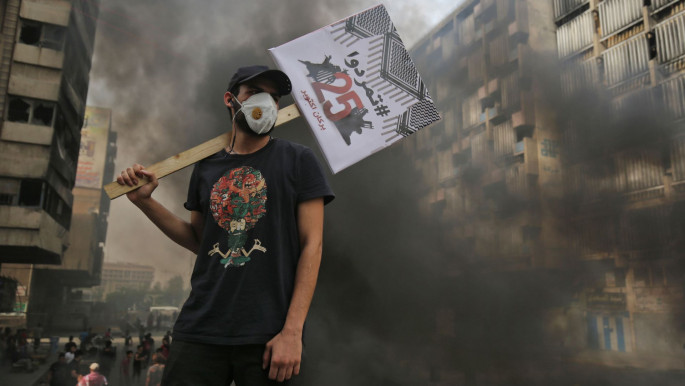 |
|
| Read more: 'They are still trying to silence us': One year on, Iraq's youth rise again |
"Our assessment of the administration of justice in terrorism-related cases in Iraq has found frequent violations of fair trial rights," Bachelet said. She also complained that "ineffective legal representation, overreliance on confessions and frequent allegations of torture or ill-treatment" were common.
Rights watchdog Amnesty International also described last Monday's mass execution as "an outrage". Lynn Maalouf, Amnesty International's Deputy Regional Director for the Middle East and North Africa, said, "It is high time the Iraqi authorities put an end to executing people."
"Retaliatory executions not only fail to deliver justice to the victims and to their families, they serve to reinforce perceptions of partial justice, at a time when the authorities are mum in regards to other serious violations such as torture and enforced disappearances that are still taking place across the country," Maalouf added.
There have been further allegations that these executions were motivated by sectarian interests. "This has been going on since 2005 and especially since [former Shia Prime Minister] Maliki was in power," Ahmed al-Aqidi, a Sunni human rights activist, told The New Arab.
"Maliki left office in 2014 but the problem is not just one man, it is an entire sectarian system that seeks to persecute and punish Sunnis for the crime of being Sunnis – this is how Daesh came to conquer Mosul," Aqidi said, using the Arabic acronym for the IS group.
 |
Since 2005, Iraq's Sunnis have said that the country's draconian counterterrorism laws have unfairly targeted them |  |
During the 2012-2013 protest movement, largely Sunni demonstrators took to the streets across six of Iraq's 18 governorates demanding legal reform as they said they were being unfairly targeted by counterterrorism legislation.
They further alleged that the country's so-called "de-Baathification" programme that was first instituted by the US' military governor of Iraq, Paul Bremer, in 2003 also unfairly scapegoated Sunnis as Baathists to deprive them of economic opportunity or the right to engage in political activity.
Kifah Khalaf, an anti-government demonstrator from Basra, told The New Arab, "When the authorities use the term 'al-Qaeda', 'Daesh', or 'Baathist', they may as well say Sunni."
"The authorities have rounded up any undesirable Sunnis and placed them in prisons, tortured them for false confessions of terrorism, and will now kill them," Khalaf said. "Most Sunnis outside of prison live in cities that have been destroyed or refugee camps where they are robbed and raped by sectarian security forces. The country has collapsed."
Since the end of the military operation to retake areas under IS control three years ago, Iraqi courts have sentenced and tried scores of individuals for suspected affiliation with IS in unfair trials, often resulting in the death penalty, and in many cases sentences were based on so-called "confessions" extracted under torture.
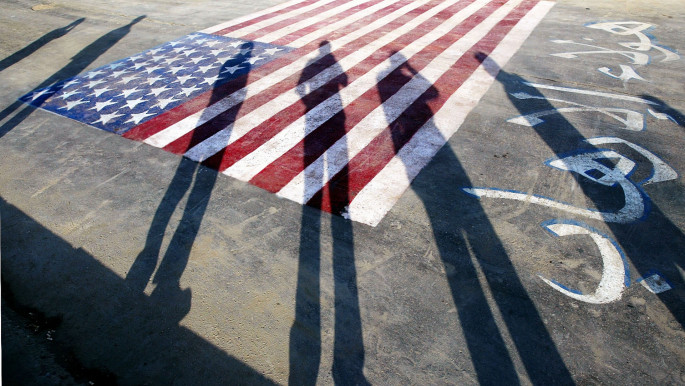 |
|
| Read more: The Iraq Report: Iraqis fear emboldened Iran-backed militias after Biden's election victory |
If the justice system continues to be used as a tool to bludgeon the Sunni Arabs out of any political activity, educational or economic opportunities, then the federal government in Baghdad is likely to simply be sowing the seeds for the next brutal sectarian conflict, a conflict it can ill-afford.
US troop withdrawal encourages renewed militia violence
The activities of Shia power players are not limited to death row prisoners and disenfranchised Sunnis. There have also been further attacks against the United States embassy in Baghdad by hardline Iran-backed militants which has led to the loss of civilian lives.
A volley of rockets slammed into the Iraqi capital Baghdad late Tuesday, killing one girl and breaking a month-long truce on attacks against the US embassy. According to the Iraqi military, four of the rockets landed in the high-security Green Zone, where the US embassy and other foreign missions are based. Another three rockets also hit other parts of Baghdad, killing an 18-year-old girl and wounding five other civilians.
All seven rockets were launched from the same location in east Baghdad, the Iraqi military said in a statement. AFP reporters heard several large blasts, followed by rapid-fire sounds and red flares lighting up the sky, indicating that the embassy's C-RAM rocket defence system was deployed.
The attacks have been claimed by groups described by both the US and Iraqi officials as "smokescreens" for hardline Iran-aligned factions in Iraq. In effect, Iranian proxies have themselves been using proxies to evade responsibility.
 |
On one hand, the US is seen as the reason behind most of Iraq's woes, including Iran's ascendancy in the region. On the other, Washington is seen as the only force capable of delivering blows to Tehran's ambitions |  |
While the US-designated terrorist group Kataib Hezbollah has been blamed for other attacks and bombed by the US, it claims that it is not responsible and that it is abiding by a ceasefire announced by the "Islamic Resistance factions" – a byword for Tehran-sponsored militants. The attack came immediately after the US announced it will slash troop levels in Iraq to their lowest levels after President Donald Trump pledged to end conflicts abroad, the Pentagon announced Tuesday.
Acting Defence Secretary Chris Miller said around 500 troops would come back from Iraq by 15 January, leaving a token force of only 2,500 active soldiers. The moves reflect Trump's policy "to bring the wars in Afghanistan and Iraq to a successful and responsible conclusion and to bring our brave service members home," Miller said.
Miller said the US had met its goals, set in 2001 after the Al Qaeda attacks on the United States, to defeat Islamist extremists and to help "local partners and allies to take the lead in the fight."
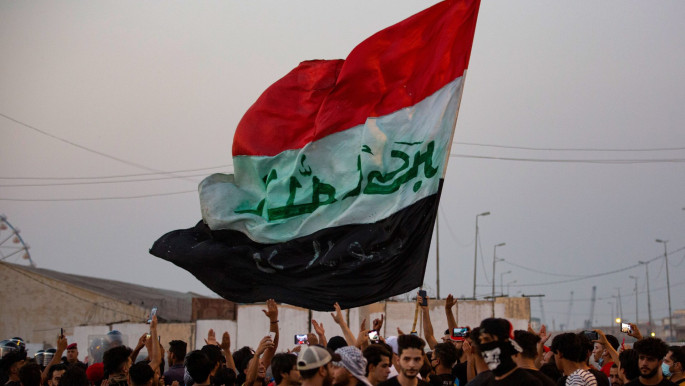 |
|
| The Iraq Report: Kurd-on-Kurd violence as protesters clash with police |
However, the move has also met opposition, including from within Trump's Republican party. Republican Senate leader Mitch McConnell warned Trump that the drawdown in American military presence would give extremists "a big propaganda victory" and would risk allowing IS and al-Qaeda to rebuild.
Segments of the American mainstream media have also criticised the decision as part of a cynical ploy on the part of Trump "by lighting too many fires [for Biden] to put out".
Major US network CNN said: "President Donald Trump's order of a further withdrawal of US troops from Afghanistan and Iraq is the latest foreign policy move on a growing list in his final weeks in office that are meant to limit President-elect Joe Biden's options before he takes office in January."
Whether Trump wants to simply fulfil a campaign promise of bringing American soldiers home or whether he is cynically attempting to box in Biden's foreign policy options before he takes office is immaterial to the impact on Iraq.
On the one hand, the US is seen as the reason behind most of Iraq's woes, including Iran's ascendancy in the region. On the other, Washington is seen as the only force capable of delivering blows to Tehran's ambitions in the war-ravaged country.
If former President Barack Obama's rushed withdrawal from Iraq in 2011 is anything to go by, however, we can expect to see increased internecine violence with the possibility of an all-out war in the coming years, as occurred in 2014.
